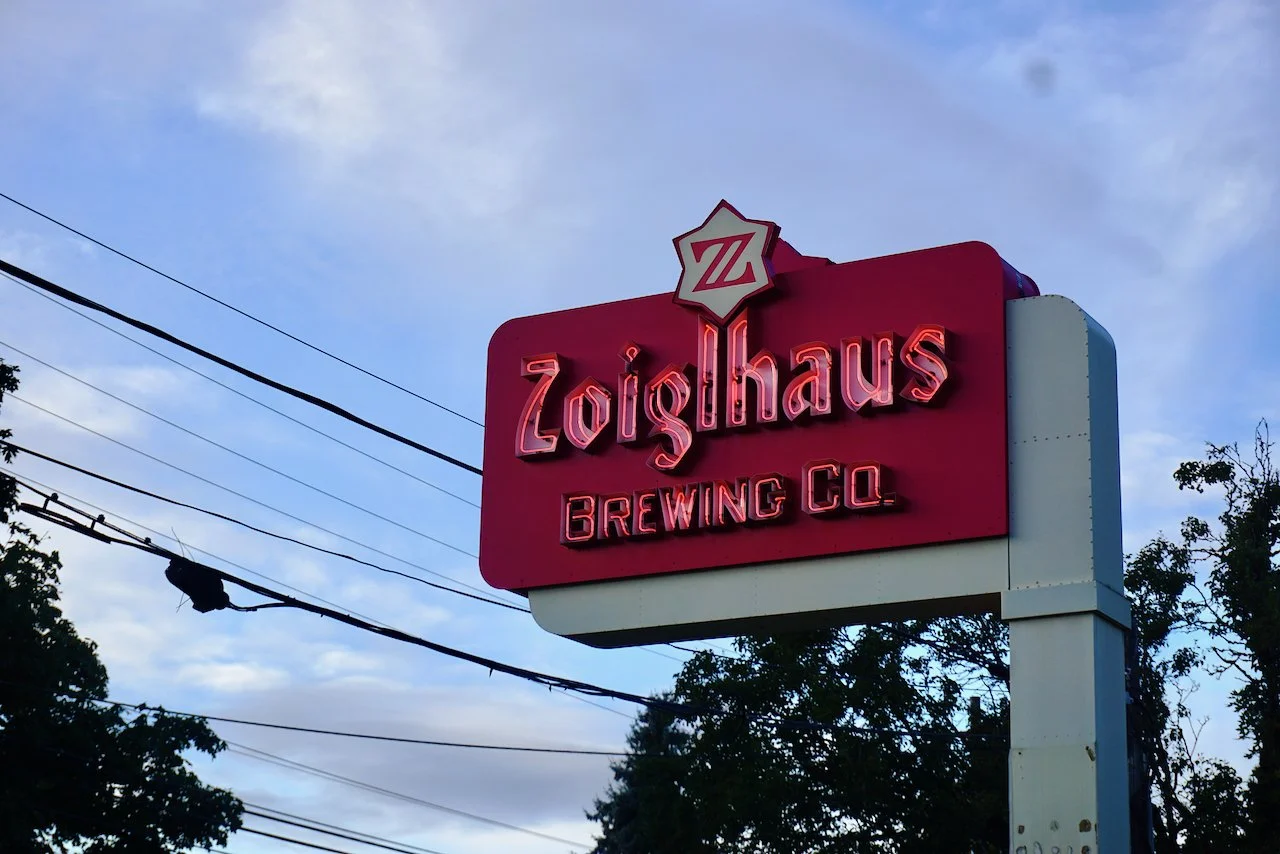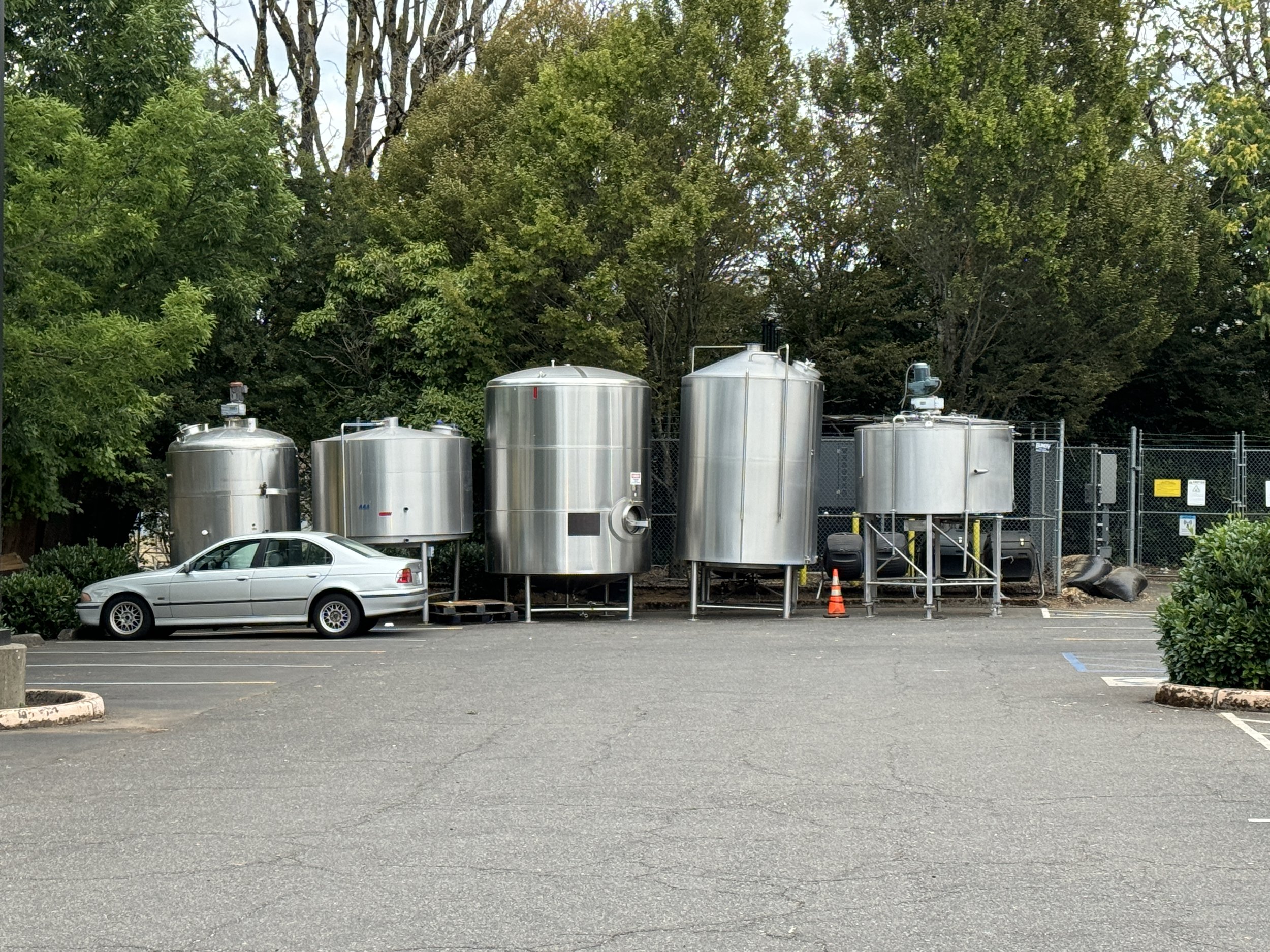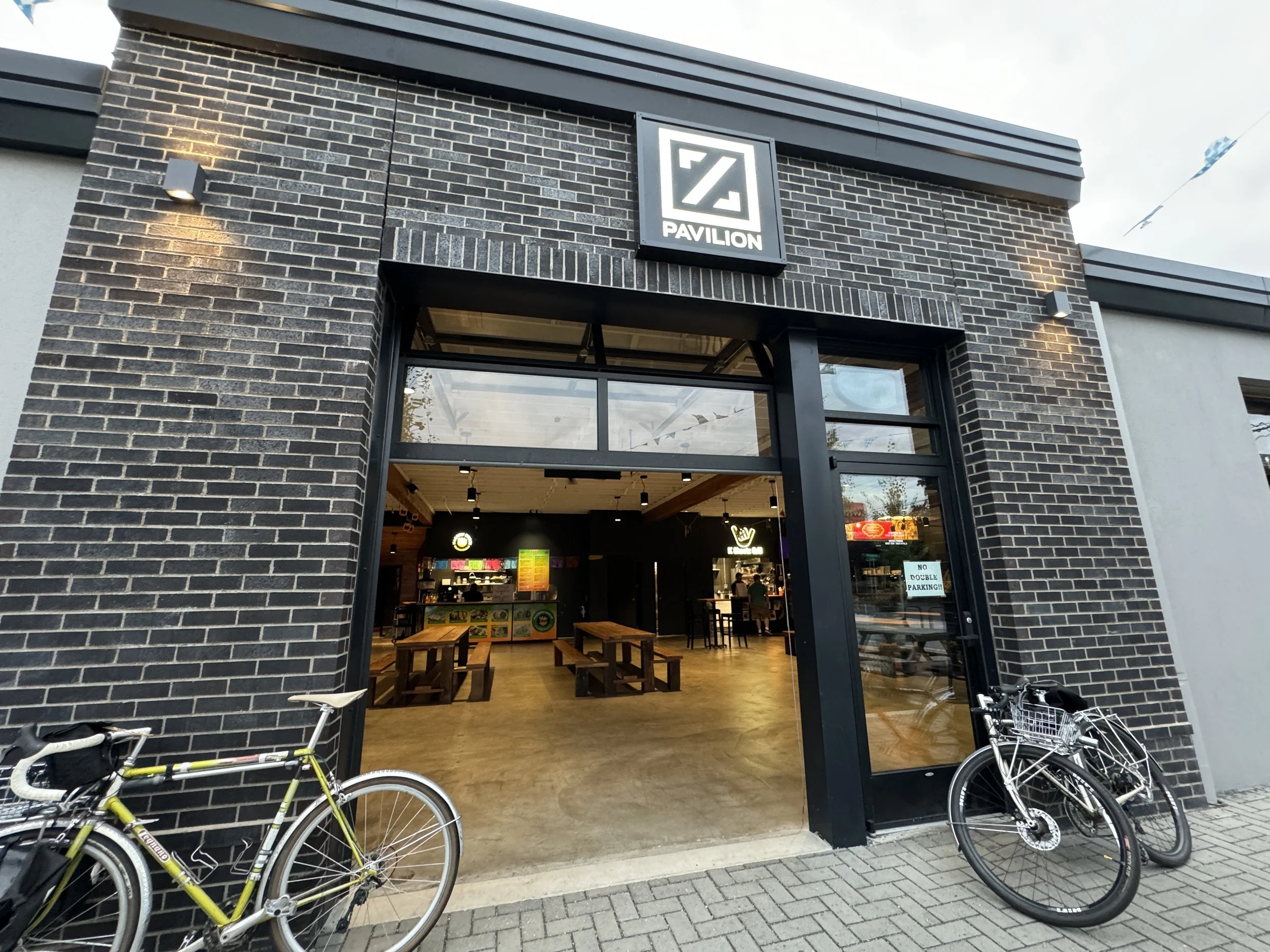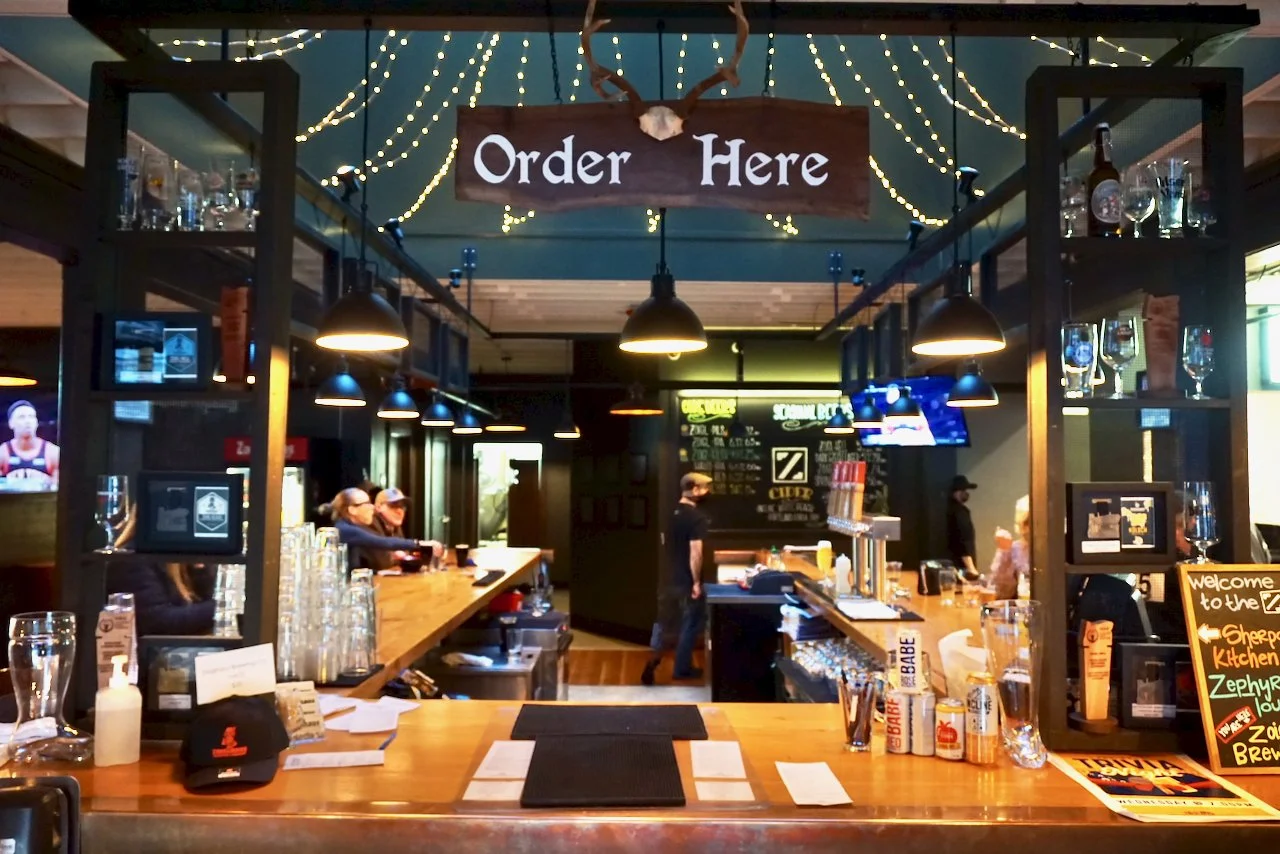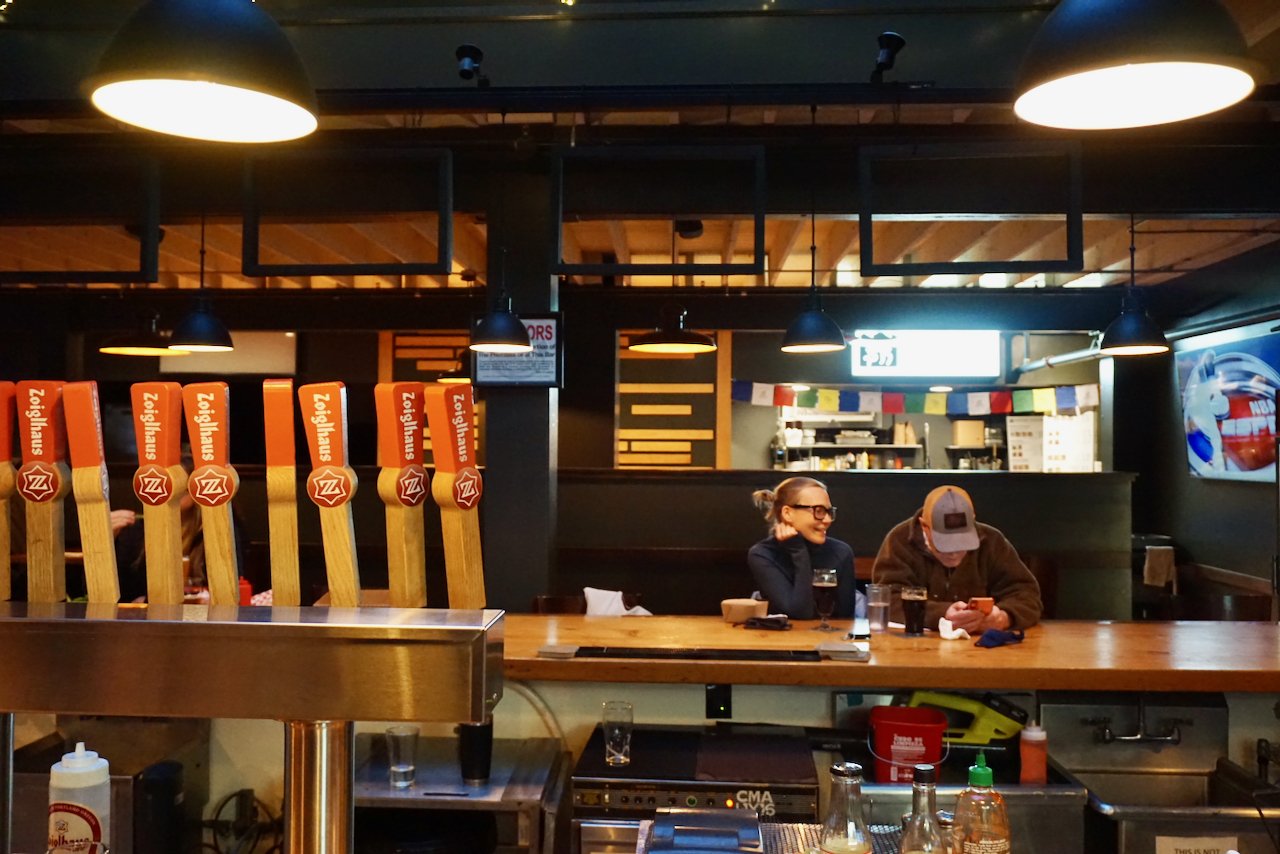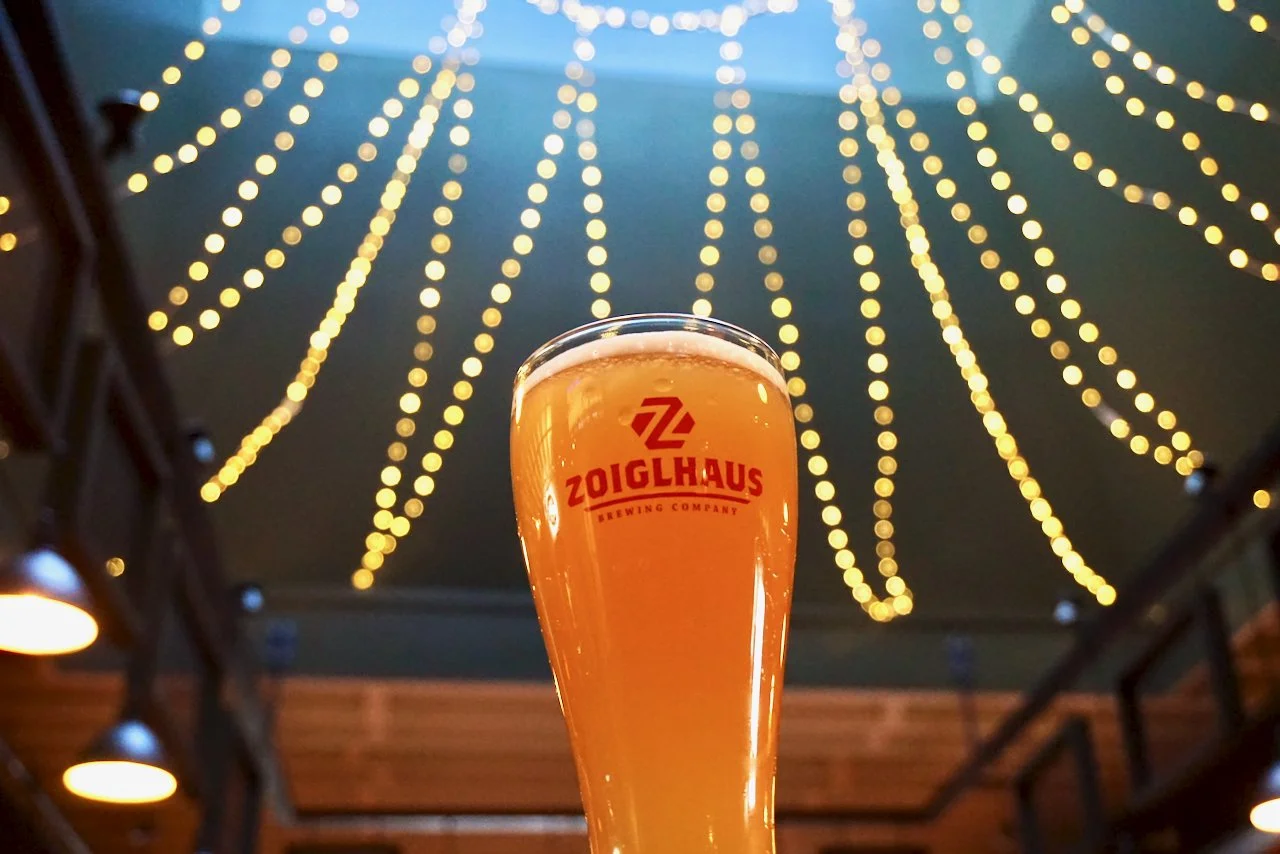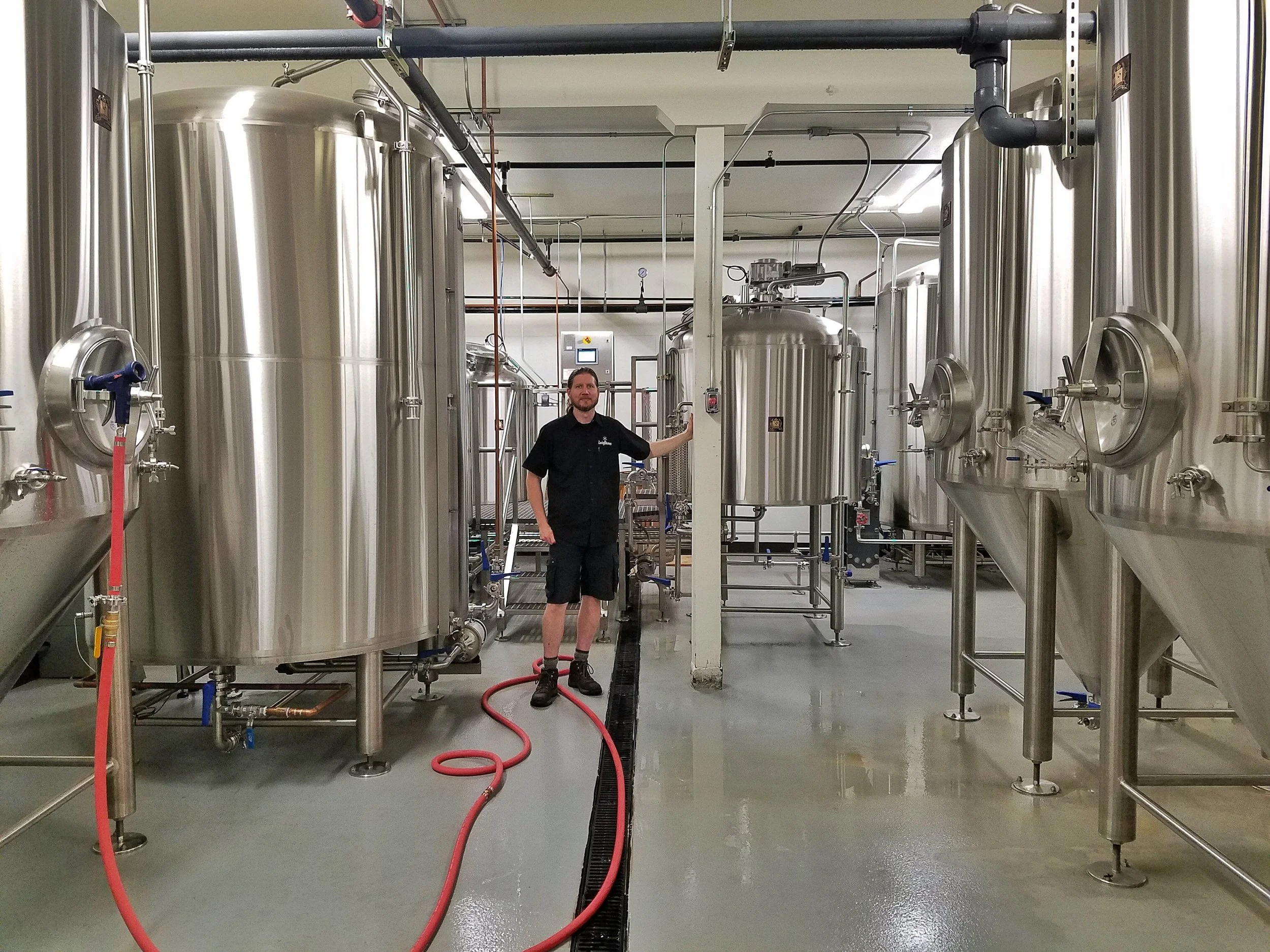Zoiglhaus Brewing grows up
The feeling of fall is trickling into Portland on an unseasonably cool August Monday night and veteran brewmaster Alan Taylor is still handling paperwork in Zoiglhaus Brewery’s Lents brewhouse. This is pretty much the busiest time of year for Taylor, who co-owns the operation with Chad Rennaker. He and his team are gearing up to brew their first fresh hop beers of the season with their Kolsch and Oktoberfresh, two sought-after brews that are usually among the very first fresh hop beers in the region to hit the market. But that’s not the only reason why Taylor is so busy, as he manages production for in-house sister brands including Latin-inspired Cerveceria Norte and straightforward NW-style Ascendant Brewing Co. as well as contracting brewing for a slew of other independent operations.
Zoiglhaus has spent the last year readying a major production expansion and finishing a total overhaul of their brewpub. Adding on to their existing 3-vessel 10 barrel brewhouse with an annual output of 5,000 barrels, Zoiglhaus is ready to install a 35bbl brewhouse they obtained from Olympia, Washington’s Fish Tale Ales. That will get them up to 30,000 barrel capacity with three additional 60-barrel tanks that can be overfilled. With their five head Wild Goose canning line that fills around 100 cases an hour conveniently located in the spacious Zoiglhaus basement, they have become the most attractive contract brewing operation in town. Amidst a beer industry climate that is seeing tragic declines throughout the country, the Zoiglhaus has proven to be a quiet success story that offers a glimmer of hope not just for their brands, but for the numerous other brands that rely on them to turn their craft beer dreams into reality.
“We will ultimately be operating two brew houses. The 35bbl brewhouse will go online once we need to fill the 60s and 100s more often than we currently do,” says Taylor. “The combination of sizes will give us efficiency on the big tanks and freedom to make smaller batches for us and our contract brewers. Just having three 60-barrel tanks that we can put 70 barrels of lager in is huge.”
Besides the brewing operation, Zoiglhaus also houses a food and beer hall and events space known as The Zed. In September of 2023, they completed a renovation of the space that was part of the brewhouse expansion and added new areas for food vendors and more places for the community to gather. They had previously operated a more traditional pub space with German-leaning food. Now, the nearby community can pick from a diverse, globe-trotting range of culinary options such as Venezuelan fare (La Arepa), Thai (Coco Garden), Nepalese cuisine (Sherpa Kitchen), Turkish (Shiki Shiki Baba), Indian (Hamara), and more. Of course, all of this can be complemented with a Zoiglhaus beer or even a cocktail from their onsite 21+ lounge called The Zephyr. This model transcends the traditional brewpub and has found appeal well beyond the typical craft beer patron.Taylor says the pivot to being able to focus exclusively on brewing while leaving food operations to other vendors has been helpful for him while he has also seen an increase in excitement and traffic from people in the neighborhood.
Such a big footprint and operation may seem illustrious for a brewery that has maintained a much more low-key presence in Portland’s beer scene than many of the hypier players that have emerged in the last several years. Some of those players, like Oak Union Brewing, Ferment, Wayfinder, and Level, even relied on the Zoiglhaus facility in their early days to help them get beers out, surely a precursor to the contract brewing that is such an essential part of the operation today. But Taylor’s qualifications, having worked as a brewer at pioneering craft enterprises Widmer, Full Sail, and Gordon Biersch, instilled an almost spiritual devotion to consistency as well as a businessman’s understanding of small, sustained growth over a longer period of time.
“90% of the breweries are down double digits. Happily, we were able to grow a little bit just with our own brands. Maybe it was helpful not being able to make more beer so that we could get it out there and people could buy it. At this point, we are open to significant growth, so we’ve hired another sales person. We’re going to hire someone in the Seattle area somewhat soon to drive more business up there. I think the ability to say, we have enough capacity to actually sell more, and then we’re going to go out there and sell it, that’s definitely positive,” says Taylor.
Taylor is also optimistic about playing the long game. “We’ve gotten so local in the last 5-10 years - people are really buying local, which is a good thing - and there are brewpubs everywhere. It really takes the power of a Deschutes or Full Sail a Widmer away, unless there’s some amazing lightning-in-a-bottle thing, they’re just not going to grow that fast anymore. They’re not going to go from zero to 100 in two years. So we’re in the game of long slow growth. If it takes me five years to start cranking out 20,000 barrels, that’s totally fine. That’s a hell of a lot of growth in five years.”
Beyond his experience stateside, Taylor went to brewing school in Berlin where he was able to truly hone his passion for crafting perfect lagers in the German tradition. He also found himself drawn to the country’s zoigl tradition, where a community shares a brewhouse, and he brought a similar ethos with him to the namesake brewery he founded in 2015. While he is proud of the quiet growth that his brands - as well as the Ponderosa Brewing Company in Albuquerque, New Mexico where he also works as brewmaster and distiller - have experienced, he also points out that contract brewing is both an essential part of the business model and a way for smaller brands to get product to market without a massive investment.
Zoiglhaus brewmaster/co-owner Alan Taylor
“I think the whole thing with beer being up and down is that there is always some underlying change in the market. I think we’re able to help people who may not have the infrastructure in place and want to dip their toe and say can they make this work without losing their house. We have all of the equipment to be able to see if their dream is a reality or not. Some people say this is the worst time to get into brewing. I’d say it’s the worst time to buy a brewery and have one and a half million dollars hanging over your head. It’s a lot easier to say I’m going to put $10,000 into this and see what happens,” he says.
Taylor is a brewer of restraint and perfection, allowing him to make beer for others without overdoing it. His passion for the German lager tradition is abundantly clear - and his talent is evident from decades of experience as well as medals from GABF and OBA - but he also takes an open mind and is able to bring his disciplined approach to brewing to the beers he produces for others.
“There might be a guy who doesn't know how to brew but wants a brand to work with. People trust us to make high-quality beer and be consistent with it.”
With that comes a willingness to brew styles that might be seen as an affront to the German Reinheitsgebot but still bring a level of enjoyment to the work that Taylor appreciates.
“I take tradition seriously. When we say something is traditional, we mean it. One thing that used to bug me more but I dont care about as much now is, for example, when somebody said, I’m going to make a gose and then they throw all the stuff into it and oversalt the hell out of it and it’s wicked sour and nothing close to what a gose would be if you were to have it in Germany. But if you say this is a raspberry beer based on a gose style, that makes sense to me,” says Taylor. “Unless there is something absolutely crazy we can’t accomodate. There is a point where I say no but it takes a long time to get there.”
At the end of the day, Taylor and his team want to keep themselves versatile while staying true to the Zoiglhaus dedication of consistency and quality whether they’re brewing lagers, IPAs, or fruited ales. “If you just hang on being a traditionalist, you kind of get locked in a box, so bouncing in and out of that box is helpful. You might say, ooh, here’s a weird beer and then go back home to pils.”
As they close out 2024 on a high with a busy season of fresh hops and look to expanded operations and new contract brewing coming online in 2025, it’s clear that Taylor is playing the long game and having fun while doing it. Obviously, it takes good partners and stable resources to be able to sustain a brewing operation, but at the end of the day it’s about being flexible and open to change while never compromising quality. Their brewhouse buildout is still in progress, and they haven’t hit 30,000 barrels a year yet, but they hope to get there soon.
“I think the flexibility of the brewhouse is super important. We’re very consistent from batch to batch, and we have very little deviation from what we’re trying to hit. So people come in and they see the equipment we have - we have a centrifuge online and a canner - and they like it. We have good brewers and people know that we make consistently good beer. That’s always a good start. And I think once people get to know me they realize that yes, I’m very traditionalist and anal, very focused on doing things a certain way, but once you tell me what your way is, that becomes the way that beer is made. Unless there is something absolutely crazy we can’t accommodate.”


